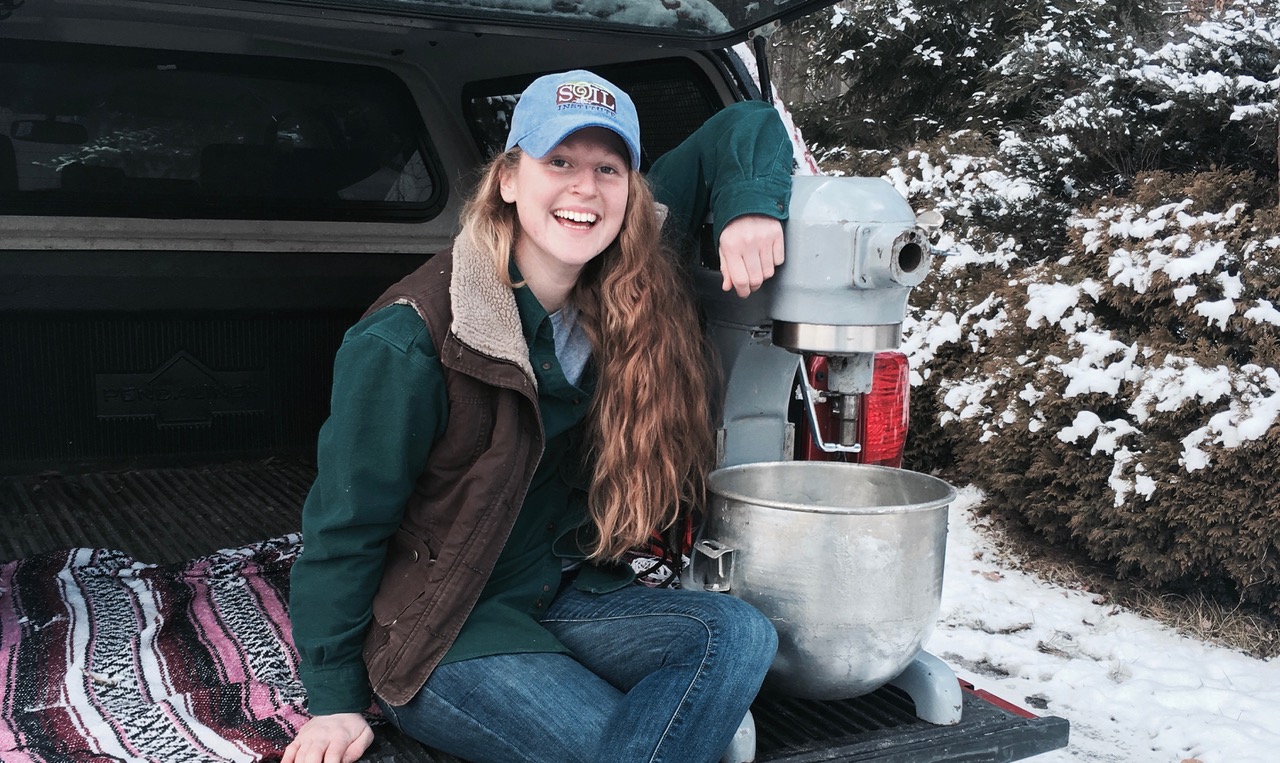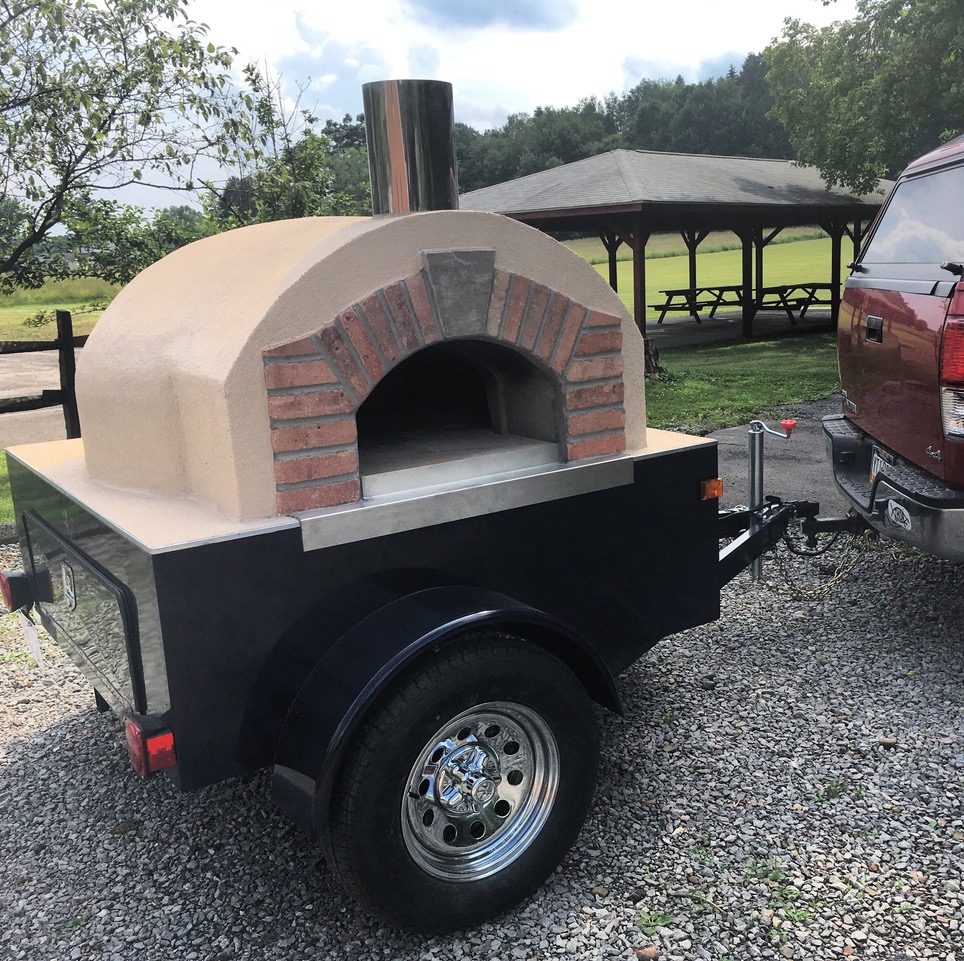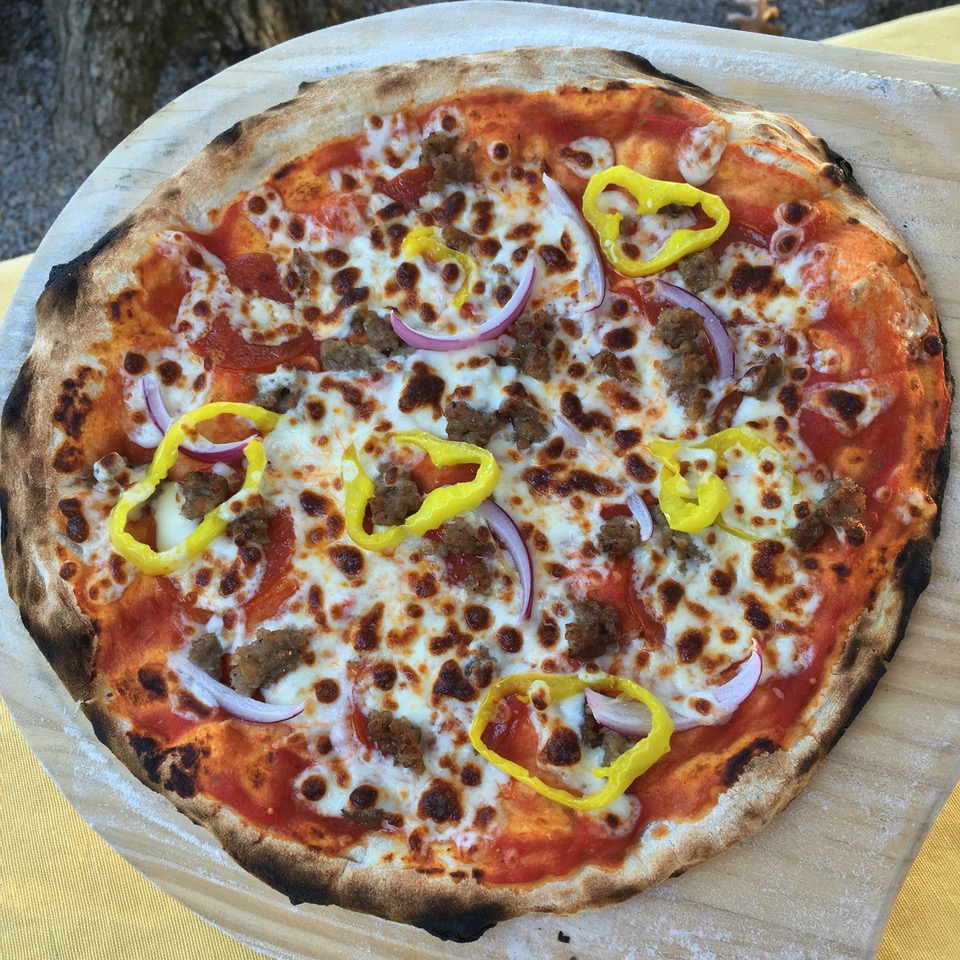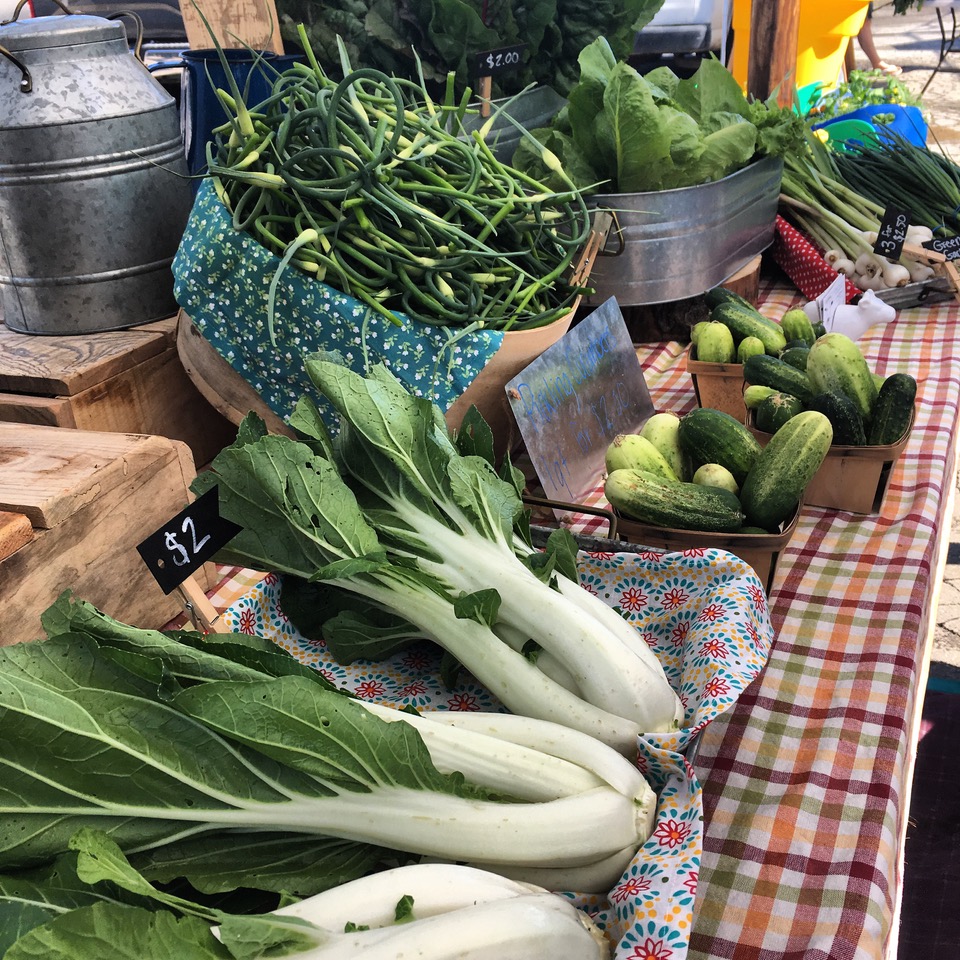guest essay: how do we turn all food into love food?
This is a TED-style piece that I wrote and delivered for an event at Dickinson College in Carlisle, PA in December 2016. I graduated from Dickinson in 2015, where I studied Anthropology and Archaeology.
-- Mackenze Burkhart, Stubborn Ewe Farm
For the past year and a half, I have worked full time on the College farm managing our livestock program and our mobile pizza operation. I finish up my position and leave for home, Western Pa, right before Christmas. I’m moving home to start a farm and a small business. I plan on raising my own livestock, growing organic vegetables, oh and maybe you had an inkling of this already- hopefully starting my own pizza business. I understand this all sounds a little crazy- and it is. You see farming has made me crazy. But it has also made me brave, strong, and hardworking. All qualities that I hope will lead me to success as a young entrepreneur.
I can see it in your eyes- how did she study anthropology and end up here? Well bear with me and I think it will start to make a lot of sense.
Let’s start at the beginning, like the very beginning. Heritage. Who in this room feels extremely connected to their heritage?
I do. And if you know me, or if you asked me right now what I am, it’s likely I would tell you Italian. But here is the funny thing. Even though my great grandfather was born there, at this point I am only 1/8th Italian. I am actually very German.
So why do I associate myself so fully with my Italian heritage? No surprise here- playing into the stereotypes about Italians- its food. For whatever reason, we have maintained our Italian culture throughout time and generations based on the meals we share.
But not in the way that we are “foodies”, I mean yes, we have very high standards for pasta and sauce, and yes, we spend entire days cooking ridiculously huge meals, but what my heritage has really taught me is how to love through food. How to feed the soul with a hearty meal that is mindfully prepared. How sometimes food can mean more than words. That food can bring healing. Food is how my family communicates.
I recently had a conversation with a good friend where I was essentially asked to describe how I display love. At the end of my description he simply said “You do realize everything you just listed was food related”. So, he knows I’m a girl with a hearty appetite I suppose… No, but really it is true…I’ve come to see that food is my love language.
And I am sure that in some ways it is a love language for many of you. This is where the anthropologist in me comes into play. Complex communities were formed when we made the shift from being hunter-gatherers to being farmers. Food takes time. Food takes energy to create. Storing excess food allowed us to create the time and space in our lives for art, spirituality, specialized labor, you name it. Privileges we take advantage of these days.
So now we talk about this created time in a different way – a word that comes up a lot in food conversations- convenience. We want food to be handed to us, and we want it fast. The good news is we all understand this about each-other, so even in this crazy, fast-paced, modern world that can feel so loveless our food love language can still exist.
A friend is sick- we bring food
A friend is grieving- we bring food
A friend is celebrating- we still bring food
And here is the thing- “love food” that's what I’m going to call it- is usually high quality- requires time- and is homemade.
So inherently (whether we cognitively recognize it or not) we, as a whole, understand the importance of slow food.
That’s where the rest of my heritage comes into play. I also come from long lines of german farmers, including PA dutch farmers. Stern. Strong. Hardworking, no bullshit farmers.
So, when you combine my need for Italian “love food”, with the drive of a german farmer, and an anthropologically fueled desire to serve my community, you get a woman who is passionate about growing, and creating, wholesome, sustainable, convenient, and delicious food to her community.
You get a woman who is moving back to her small rural pa town that she used to hate in hopes of making a difference. You get a woman who is infuriated that a town so based in agriculture could be considered a food desert. You get a woman who doesn’t want to make a lot of money, just enough to care for her family and continue serving the community. You get a woman who can wrestle a sheep, bake a mean pizza, and wears her biggest smile when she gets to see the people she loves chowing down on something it took months to create.
So how do we turn all food into love food. This is really the question we are asking when we begin to examine the local foods movement.
I’ll tell you how- love food guerrilla warfare. Which is really a hilarious way to title what I am about to describe.
We have to get people to care about the local foods movement- without them knowing we are getting them to care about the local foods movement.
Sounds easier said than done, and it is not easy, because it needs to come from the very very bottom of a grassroots movement.
It starts with the smile you flash when you hand someone a bundle of beautiful organic carrots.
It starts with the taste of a fresh slice of wood-fired pizza made with all local ingredients.
It starts when you know your customers by name, and then you know their children's names, and then you know what their stories are, and then you know the things that are important to them, and then you know you will see them every week for the entirety of your market season.
Forget the fire and brimstone approach. Fear does not pull heart strings the way that love does. Get to know the people in your community, love them, and if you welcome them with open arms they will see the benefit of participating.
I’ve learned to stop separating food and community. Food is community. Through food we can heal our communities, and we can heal ourselves.
I’ll leave you with one last story about the healing power of love food.
No matter what holiday you celebrate this time of year, we are right in the heart of a season filled with giving, love, and food.
Last week was Thanksgiving. A holiday I deeply struggle with for several reasons. One I studied Anthropology… I’m sure you can see the large number of issues there, ones that I don’t have time to build on. I struggle to be okay with my privilege as I sit at a table, in a warm house, stuffing myself to the gills. And I struggle because for many years, despite recognizing my privilege, I haven’t been thankful for this event.
My grandparents live in a house my parents built for them in my backyard, so I have been very close to them for a large portion of my life. This is where my Italian grandmother lives. And in my family, like true Italians, holidays are a very big deal. When I was a freshman in high-school my grandfather died instantly of a massive heart attack, the night before Thanksgiving. I have hated Thanksgiving for a very long time.
But this year, year 8, was different. Last week I wrapped up a farm shift, loaded my car with things I had grown, and headed home. I made bread. I baked pies. I roasted veggies. I fed my family food that I had been a part of every step of the way, food that I was proud of. And I didn’t cry. And I enjoyed my dinner. And I felt so thankful.
That is why I do what I do. That is why I want to provide food for others, in this same manner. That is why I am a farmer.






